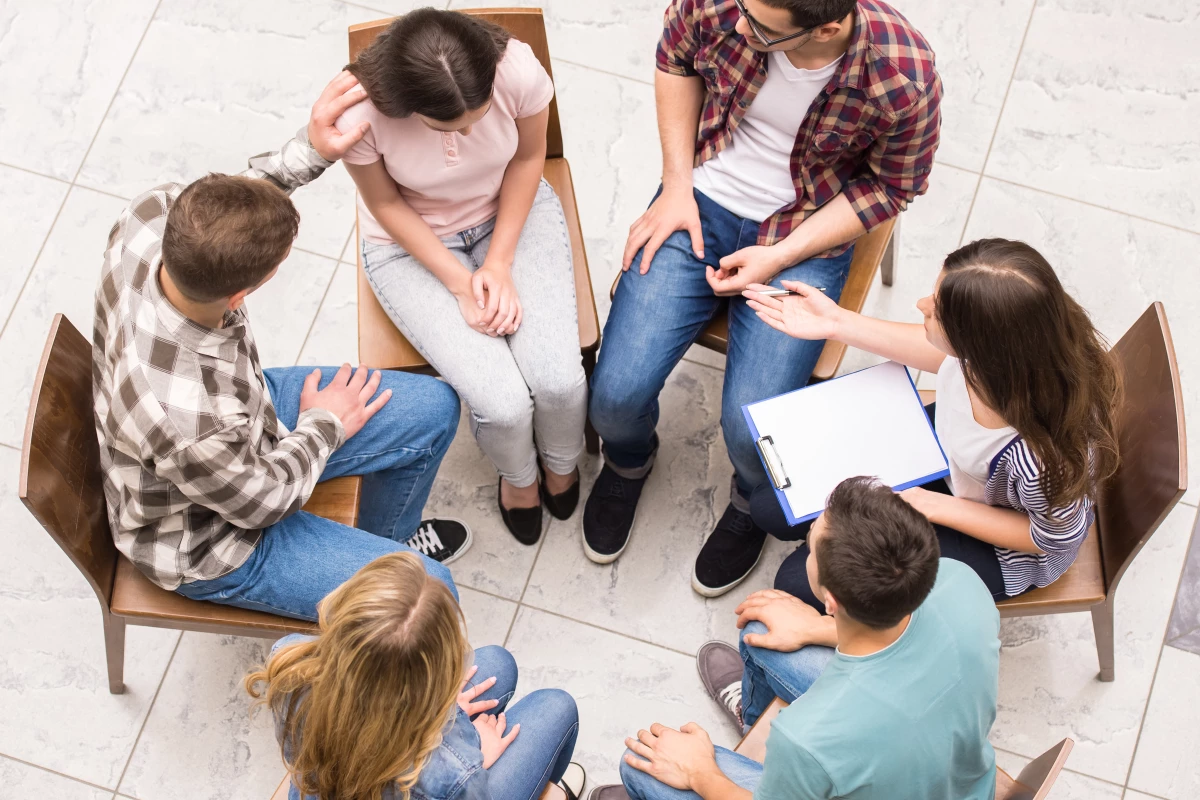A first-of-its-kind trial exploring MDMA-assisted therapy in a group setting is about to commence following the resolution of a clinical hold placed by the US Food and Drug Administration (FDA) that paused progress for several months. The goal of the group therapy trials is to make MDMA-assisted therapy more cost-effective and accessible if it is approved for clinical use in the coming years.
In the rapidly growing world of psychedelic medicine, perhaps the most clinically progressed application is MDMA-assisted psychotherapy for post-traumatic stress disorder (PTSD). Spearheaded for decades by the Multidisciplinary Association of Psychedelic Studies (MAPS), the treatment modality is currently in advanced Phase 3 trials, with impressively strong preliminary results.
It’s possible MDMA-assisted therapy for PTSD will be authorized by the FDA over the next few years but questions of equity and accessibility hover over the approval. The protocol for MDMA-assisted therapy involves a number of sessions over several months, and this kind of one-on-one therapy does not come cheap.
Various studies have estimated MDMA-assisted therapy will cost anywhere from US$8,000 to $15,000. This covers a number of pre- and post-MDMA therapy sessions, and up to three eight-hour MDMA sessions accompanied by two psychotherapists.
MAPS has presented strong research indicating the one-off cost for a course of MDMA-assisted therapy is significantly cheaper than the ongoing annual medical costs for treating chronic PTSD. However, the expense and intensive nature of the treatment protocol will undoubtedly render it inaccessible for many. And this has led MAPS to investigate whether MDMA-assisted therapy can be incorporated into group therapy sessions to reduce to cost of the treatment.
“The current FDA-guided protocol for individual patient MDMA-assisted therapy for PTSD, which requires numerous two-therapist sessions for each individual patient, may present accessibility challenges for some, particularly individuals from marginalized populations,” MAPS explained in its study proposal for group therapy MDMA treatments. “A group therapy protocol, in which most of the therapy sessions are conducted in a group setting, would significantly decrease both the time and cost associated with treatment, further supporting accessibility and rapid post-approval dissemination.”
A Phase 2, open-label feasibility study was first proposed late last year. To be conducted at the Portland Veterans Affairs (VA) Medical Center in Oregon, the trial was approved by the VA Institutional Review Board at the start of the year, only to be unexpectedly halted by the FDA in late February.
The FDA’s primary safety concern with the proposed trial was the lack of participants being required to stay overnight in a controlled setting following each MDMA session. Prior Phase 2 clinical research on MDMA for PTSD required this protocol for safety reasons, however, MAPS has claimed subsequent Phase 3 trialing has removed this requirement and found it safe for all participants.
Following several months of negotiations MAPS has now announced the clinical hold on the trial has been lifted and the FDA is permitting the study to commence with no overnight stays necessary. Allison Coker, MAPS’ associate director of regulatory affairs, said the overnight stays in Phase 2 studies were in place out of an abundance of caution and subsequent Phase 3 trial data has indicated they are not necessary to maintain trial safety.
“Though we had no data to suggest there was a concern about safety overnight, these stays became required from the FDA perspective,” Coker said. “In the Phase 3 program, we’re collecting safety data from participants with and without overnight stays to gather evidence to whether overnight stays are necessary. From the data we have so far, that doesn’t seem to be the case. We are pleased that the safety data in the Phase 3 substudy without overnight stays could support the FDA in making the data driven decision to permit no overnight stays in this important group study research.”
The group therapy trial set to commence will still follow many of the protocols established by MAPS’ other MDMA for PTSD studies. The major differences will be replacing several of the pre- and post-MDMA individual therapy sessions with group therapy sessions.
Of the two MDMA drug sessions in the protocol, one will still be conducted alone with two therapists, while the second will be conducted in a larger group context. The group MDMA sessions will still be mostly solo experiences, with participants offered headphones and eye masks directing the majority of the experience internally. Six participants will take part in each group, with four therapists monitoring the group MDMA sessions.
Chris Stauffer, principal investigator on the group therapy trial, said his primary interest in this treatment modality is not accessibility but efficacy. He believes group therapy work could offer novel and robust outcomes based on the nature of this kind of communal therapeutic work.
“There is so much yet to explore regarding the relational potential of MDMA-assisted therapy, and research on group therapy combined with MDMA sessions is a logical next step,” explained Stauffer. “What drives this work for me are the unique therapeutic properties of group cohesion that I’ve witnessed in my previous group therapy trials with oxytocin and psilocybin.”
Source: MAPS





